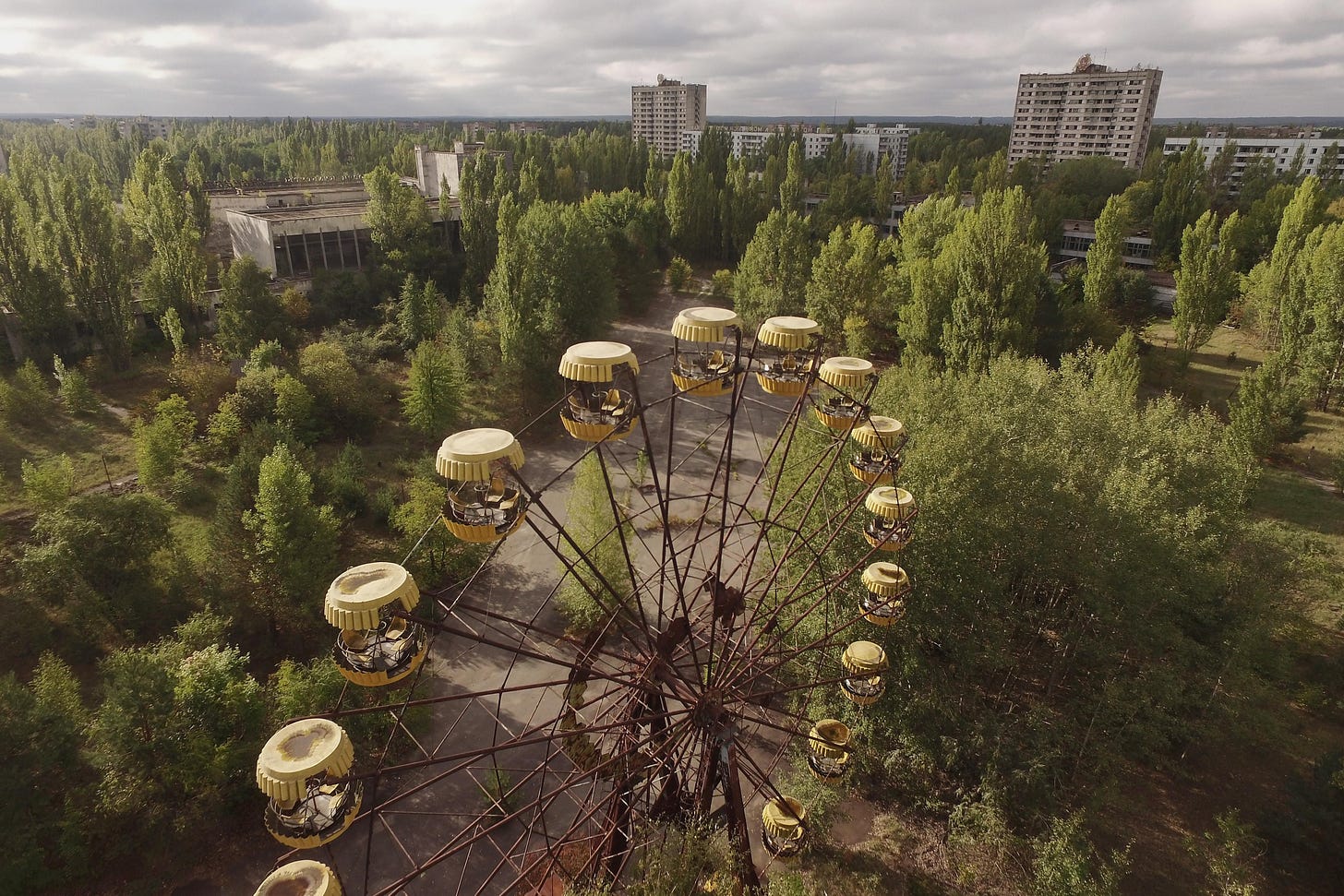🌱 The Grumpy Optimists #23
One tip to respond to the IPCC report, a book review and a must-watch video, it's a beauty this week folks!
Happy Monday all and welcome to another week! 👋 🌱
After last week's IPCC report and to warm you into your Monday morning, we've pulled together some quick optimistic reads and a video you need to watch. We've also thrown in a book recommendation too - so be sure to check that out below. As usual, let us know your thoughts in the comments below, and please share with your friends/colleagues.
The Grumpy Optimists 💚
Articles to read
😅 Keeping cool in ancient Persia? We could learn a few lessons. With air conditioning already accounting for a fifth of global electricity consumption, finding ways to reduce our use of AC in a warming world is key. The answer could lie in wind catchers, which are thousands of years old, like the one below. The structures act like giant natural fans, pumping hot air up and bringing cool air down. The structures are due for a revival and will take a leading place at Dubai Expo 2020. Pretty cool ey?
🚶 A boy walks 200 miles to campaign for a carbon tax. An 11-year-old boy has walked 200 miles from his home in Yorkshire to Westminster to lobby UK ministers on a carbon tax. He has been raising awareness for Zero Carbon's petition which, if enforced, would make polluters pay for their emissions. He has just reached Westminster and you can sign the petition below.
🌳 Madrid to build a green wall around the city. Authorities in Madrid are planting a 75-kilometer green wall around the city in order to help combat climate change. The 'metropolitan forest', planted with native species, could absorb 175,000 tons of CO2 per year and the first part will be planted in October.
A must-watch video - seriously, watch this now.
🏃 Running a marathon, a mile and an hour at a time, what's that got to do with the environment? Not a lot really, but it is bloody good. Beau Miles, an Aussie legend is a magnificent storyteller and is all about connecting to nature. Watch this and I promise you'll have the most productive week.
Book Review
Islands of Abandonment: Life in the Post-Human Landscape - Cal Flyn
Summary: An exploration of how nature has reclaimed some of the world's abandoned places and flourished in the absence of humans. If given the chance, can the natural world repair the damage and destruction we've inflicted on it? And can this offer hope in the context of climate change and biodiversity collapse?
This book is an optimist’s guide to rewilding as it explores the nuances of environmental collapse and climate change through sites of ruin and abandonment. It provides hope that, despite the widespread human destruction throughout the natural world, new resilient ecosystems can still re-emerge if we allow them to.
Flyn explores a series of ruins, ranging from former industrial sites to man-made exclusion zones long-abandoned from legacies of conflict, colonialism and nuclear accidents. On the surface, many of these ruins carry scars of industrialisation and economic 'development'. Though the majority of these sites have been frozen in time and left unoccupied by humans for decades, it is precisely this absence, Flyn argues, that has allowed new hybrid ecologies to emerge.
From the new extraordinary biodiversity emerging in Chernobyl's exclusion zone to the resilience of the feral cattle who live alone on an abandoned Scottish island, Flyn explores what can happen when we stop controlling and exploiting the nature around us.
I'll leave you with one of my favourite snippets from the text, taken from the closing stages of the book - which perfectly captures the essence of the book:
'Faith, in the end, is what environmentalism boils down to. Faith in the possibility of change, the prospect of a better future - for green shoots from the rubble, fresh water in the desert. [...] This is a corrupted world, yes - one long fallen from a state of grace - but it is a world too that knows how to live. It has great capacity for repair, for recovery, for forgiveness - of a sort - if only we can learn to let it do so.'
What can you do about climate change?
For the next 10 weeks, we'll be highlighting something you can do to make an impact. After the recent IPCC report a lot of us have eco-anxiety, so we're giving you 10 tips to become a climate optimist too. 💚
💸 Green your money!
First of all, banking. Did you know that lots of banks invest in fossil fuels, weapons and unethical dealings? Well, now you do. The first thing you can do is switch your bank account to an ethical bank. There are plenty around, including Triodos and Starling Bank, and even the Ecology Building Society. Some banks are partially ethical, but check this out for more detail. It's super easy and definitely worth it!
Next up, pensions. Making your pension green can cut your carbon emissions 21x (!!) more than going veggie and flying less. Lots of pensions don't invest ethically or sustainably, and many invest in fossil fuels, arms trades and deforestation. Make My Money Matter has more details and you can use their online tool to check if your pension is ethical. Sign their petition to call for all UK pension funds to commit to Net Zero by 2050. Many have already committed - let's make a difference!
Go on, add these to your to-do list…
That’s all, for now, folks, have a great week!
George, Ella and Will 💚





